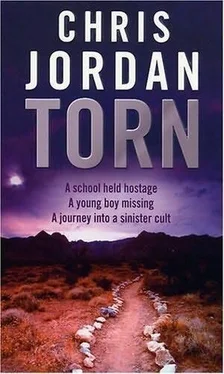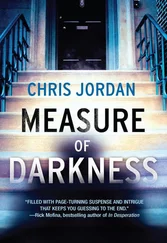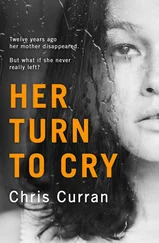As to diners and lunch counters, I can taken ’em or leave ’em, whereas Shane is clearly smitten.
“This is a Jerry O’Mahony,” he says, looking around. “Early 1950s. They were well into the stainless steel period by then. O’Mahony was one of the major manufacturers, out of Elizabeth, New Jersey. They helped make stainless diners fashionable in the 1940s. Before that it was barrel tops.”
“Whatever you say.”
He’s waiting for a slice of pie and a glass of milk. I’m not hungry.
“Barrel top was the original style. First it was horse-drawn carts with rounded tops, to give them more headroom. Then I guess what happened is, the lunch carts started parking in one place. Maybe put a little foundation under the cart, add on a wing for more room. So the folks building the carts got bigger, too. Voilà, the American diner is born. People think they’re all shiny and stainless, but the early versions were more like old boxcars with a rounded top.”
“So this is your hobby?” I ask. “Not bowling or fishing or golf?”
“Just an area of interest,” he says with a small, tight smile.
“Sorry.”
“No. You’re right. Who cares about diners? Boring.”
“Now you’re pissed.”
He chuckles, shakes his head. “No, no, absolutely not. Here I am, rattling on, when what you want to know is what happens next. Where we go from here.”
“The down payment for the new car,” I say eagerly. “It’s proof, right? That somebody paid Roland Penny to do what he did?”
The pie and milk arrive. As she sets down the glass and plate, the uniformed waitress checks him out with hungry eyes.
“Getcha anything else?” she asks, all innocence, hovering so he can get a shot of her ample ta-tas if he cares to look.
“I’m good,” he says, oblivious.
After she slinks away I whisper, “She wants to jump your bones.”
Shane makes a face, clearly thinks I’m being ridiculous. Not a clue. He digs into the pie. He’s a neat, methodical eater, has it in four bites. Dusts his hands with a napkin, then drinks half a glass of milk in one swallow. “Sorry,” he says, setting down the glass and for some reason looking guilty.
“Proof,” I remind him. “Somebody paid Roland and he thought there was more to come, enough to buy an Escalade. Plus the smoke. That never made sense, save to give them cover to snatch Noah.”
“Them?” He pats his lips with the napkin, makes sure his beard is crumb-free. “We’re getting ahead of ourselves, Mrs. Corbin. The down payment is interesting, given what we know about the perpetrator, but it proves only that he came into a little money somehow. Not who gave it to him or why. Maybe Tommy’s wrong and he made it dealing. Maybe a rich uncle died.”
“And maybe the moon is made of lemon meringue pie.”
He smiles. “Sure you don’t want a slice?”
“You don’t want to give me false hope, is that it?”
Shane stares at me with pale blue eyes that have seen a whole lot of sadness. “That’s it exactly. Tommy the Trooper already assumes I’m scheming after your money. He won’t be the only one. And they have a reason to be concerned.”
“But you wouldn’t take the check.”
“Others might. There are private investigators out there who specialize in bleeding parents dry. They come up with tantalizing little clues, some new slant, persuade the frantic mom and dad to sell the house, empty their bank accounts. And they walk away when the money runs out.”
“You wouldn’t do a thing like that,” I say.
“No.”
Just a word, a simple word, but I believe him. For no other reason than instinct and gut feeling, the same kind that makes me believe my son is still alive in the world.
“So what next? Where do we go from here?”
Shane flips open his laptop, scrolls through a few screens. This isn’t exactly Wi-Fi territory, so he’s not cruising the Net but his own research files. “The Humble Police Department,” he says. “Serving your rural community with competence, courage, and integrity. Not a bad motto.”
“They’ve been very nice. The investigation was run by the State Police, but the local cops are good folks, even if they don’t know much about what went down.”
“I’ll bet they knew Roland,” Shane says.
The day Noah’s school exploded, I really did lose my mind for a while. It felt like my brain was spinning like a mad gyroscope and I had to spin with it or lose my mind altogether. Mostly I remember running. Running around in circles in the parking lot, trying to scream but nothing coming out. Running past the distracted firefighters and cops and somehow finding my way into the ruined gym. It was smoky, of course, and the lights had been blown out, but part of one cinder-block wall had collapsed and a beam of sunlight poured through the hole. At first I thought the air was alive with butterflies, some miracle of light and goodness that would guide me through the wreckage to Noah. But it was thousands of tiny bits of paper fluttering in the utter stillness that followed the detonation. Homework, lesson plans. The smell was awful but at the same time strangely intoxicating, like a whiff of ammonia when you’ve fainted, and for a time it slowed the spin in my head.
I must have been shouting for Noah, but I don’t remember that part. What I remember is the large scorched area where the bomb went off. Like an enormous version of the mark left when boys set off firecrackers on the sidewalk. I remember climbing into the splintered wreckage of the gymnasium seats, looking for my little boy. Crawling through the twisted steel, looking, looking, as if the force of a mother’s eyes could make him reappear.
It was so lonely inside that wreckage, so lonely it hurt to breathe, but I couldn’t leave, not without Noah. Eventually I became aware that people were shouting at me, trying to persuade me to come out. I recoiled from the grasping hands-didn’t they know I couldn’t leave, that staying here would make my son come back?
The man who eventually persuaded me out, and then covered me with a blanket until the EMTs could take charge, was Troy Hayden, one of the local cops. What made me relent-I was gripping a steel support beam with both hands and refusing to let go-was his promise that they’d find Noah for me. That he hadn’t been able to keep that promise could be why he’s always so kind and polite when I come storming into the station with some new theory about that day.
It was Troy who first suggested checking out private investigators, so it makes sense that he’s willing to cooperate with Randall Shane.
“Hi, how are ya,” he says, giving the big man a formal handshake and showing us both into his small, windowless office. What used to be Leo Gannett’s office. Troy is now acting chief, and everybody expects that he’ll eventually be appointed chief.
“Doin’ okay,” says Shane. “I understand from Mrs. Corbin that you’ve been very helpful and generous with your time.”
“Least we can do,” Troy says. Compared to the late Leo Gannett, who was pretty imposing, he’s a slender little guy, only a few inches taller than me. His lack of height has never seemed to bother him, maybe because he’s a miniature hunk and has never lacked for female attention. Think Kurt Russell circa Escape From New York and without the eye patch. Helen calls him ‘Troy The Beautiful Boy,’ but she means it in the nicest possible way.
Shane hands him a business card. “I put my credentials on there strictly for disclosure. We both know being a former FBI Special Agent doesn’t give me any special privileges. I’m not a licensed private investigator. I’m acting in a civilian capacity as a consultant to Mrs. Corbin in the matter regarding her son, just to be clear.”
Читать дальше
Конец ознакомительного отрывка
Купить книгу












